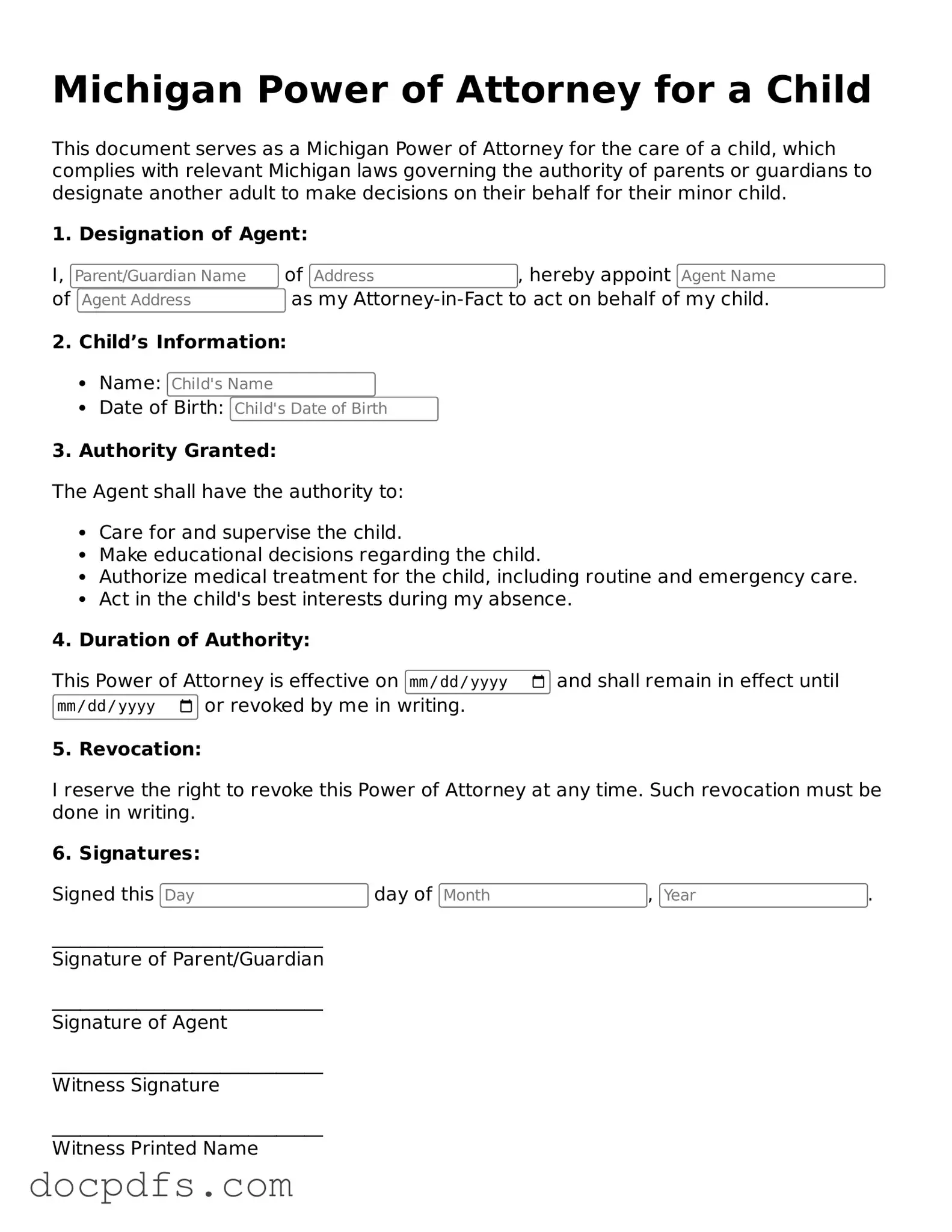Free Michigan Power of Attorney for a Child Form
The Michigan Power of Attorney for a Child form allows a parent or legal guardian to designate another adult to make decisions on behalf of their child. This legal document is crucial when parents are unable to care for their child temporarily due to various reasons, such as illness or travel. By using this form, parents can ensure that their child's needs are met while they are away.
Open Power of Attorney for a Child Editor Now

Free Michigan Power of Attorney for a Child Form
Open Power of Attorney for a Child Editor Now

Open Power of Attorney for a Child Editor Now
or
⇓ Power of Attorney for a Child
Finish this form the fast way
Complete Power of Attorney for a Child online with a smooth editing experience.